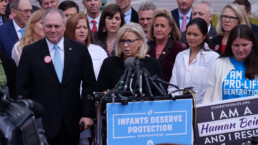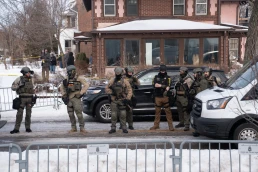Some of the reflexive militarism of Bush-Cheney era is fading and many Republicans are having a hard time with it.
By Jack Hunter, Responsible Statecraft
On Wednesday, an image that went viral on X noted that some of the most prominent Republicans were not taking part in the Republican National Convention.
The names included former President George W. Bush, former Vice President Mike Pence, 2012 Republican presidential nominee Mitt Romney, former Rep. Liz Cheney (Wy.) and 2012 vice presidential nominee and former Speaker of the House Paul Ryan.
Each of these Republicans were, and are, committed to the neoconservative version of the GOP that guided and defined their party two decades ago. A fantasy world in which the Bush-Cheney administration remained the Republican archetype, the U.S. invading Iraq was the right decision, and, in that spirit, America’s number one mission today is to send taxpayer dollars to Ukraine to fuel an indefinite proxy war with Russia.

In their time, hawkish foreign policy was the primary definition of what it meant to be a Republican. That agenda is still definitely part of the party, particularly among its entrenched establishment. But at the top, the Republican presidential nominee Donald Trump has said the Bush administration “lied” Americans into Iraq in 2003. His vice presidential choice, Sen. JD Vance of Ohio, served in Iraq, now fiercely opposes that war, and also loudly rejects the U.S. funding of the Russia-Ukraine war.
Something is different now.
Recent Posts
Trump’s Concentration Camp Build-Out Includes Nearly $40 Billion for Warehouse Conversions
February 14, 2026
Take Action Now “Germany’s concentration camps didn’t start as instruments of mass murder, and neither have ours,” wrote talk show host Thom…
Everyone Is Allowed To Protest
February 13, 2026
Take Action Now Tied up with the apparently very longstanding tradition of claiming that all opponents of atrocities are purely engaged in what has…
Abolition Is Still The Only Way Out Of This
February 13, 2026
Take Action Now Forget the useless so-called “reforms” to ICE and policing currently on offer. We need much more fundamental change.By Andrea J.…
Leading Papers Call For Destroying Iran To Save It
February 11, 2026
Take Action Now The opinion pages of the New York Times and Washington Post are offering facile humanitarian arguments for the US to escalate its…




